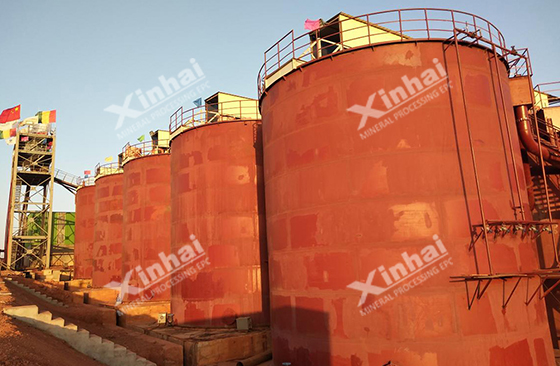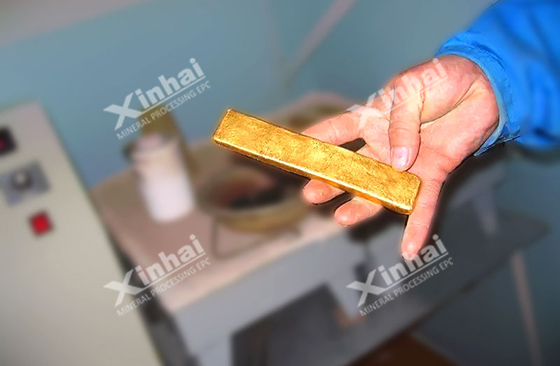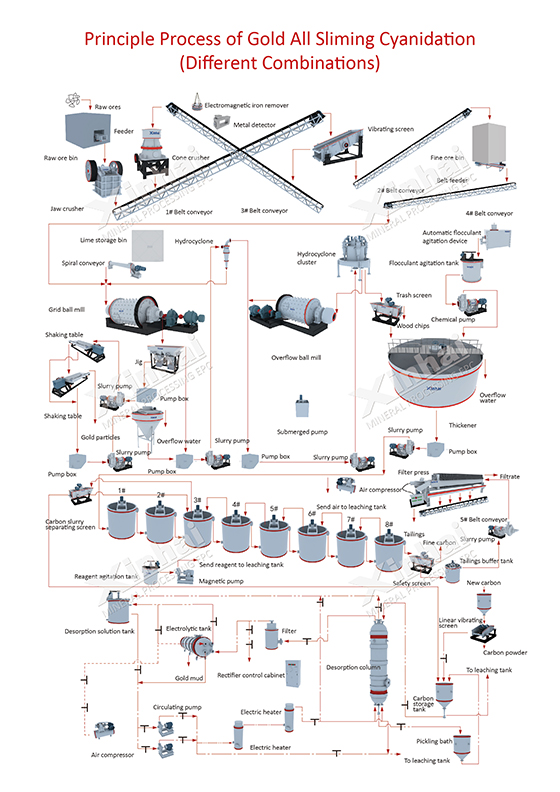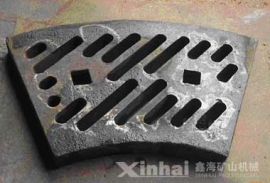Carbon in pulp(CIP)is one of the methods of gold extraction by cyanidation. For the CIP plant, the monovalent gold cyanide [KAu(CN)2] is sent to the carbon adsorption process after the cyanide leaching of gold-bearing material. Adopting the activated carbon to adsorb the gold directly from the cyanide slurry, which eliminates the solid-liquid separation. The gold-bearing activated carbon is used to desorb the gold and silver with the mixture of sodium hydroxide and sodium cyanide, and the activated carbon can be returned to use after the activation treatment.
Here is the technological process of the CIP plant:
Use the table of contents below to navigate through the guide:
01Preparation of raw materials
The gold-containing material is ground to the cyanidation particle size by the grinding mill, which is generally required to be less than 28 mesh, and the impurities, such as sawdust, shall be removed. It is advisable to make the concentration of leaching pulp reach 45%-50% through the concentration and dehydration.
02Agitation leaching in gold CIP process
Like the conventional cyanidation method, the agitation tanks are generally 5-8.
03Carbon adsorption in gold CIP process
The cyanide slurry enters into the agitation adsorption tank (slurry tank). And the standard screen and slurry lifter can be used in the adsorption tank, which can achieve the reverse flow of activated carbon and slurry, and adsorb the dissolved gold in the slurry.

04Desorption of gold-loaded carbon
Gold loaded carbon is changed into gold mud and lean carbon in the desorption electrolysis system in the CIP plant. The high-temperature and high-pressure (150 ℃, 0.5 Mpa) can desorb 99% of the gold in just 2-6 hours. Besides, the cyanide complex ions of gold and silver in pregnant solutions have is relatively high concentration, which can be transformed into high purity solid gold by the desorption electrolysis system.
05Smelt
After the simple pickling and impurity removal process, the gold ingots can be obtained directly by a high frequency melting furnace. It is suggested to ensure that the gold mud fully mixes with agents in the acid pickling agitation tank, which can remove the impurities from the gold mud or acid-soluble inorganics from the solution.

06Regeneration of desorbed carbon
After the regeneration, the lean carbon can be reused by adding a proportion of new activated carbon. After the desorption electrolysis, the coconut activated charcoal shall be pickled with dilute sulfuric acid (nitric acid), which can remove the accumulation materials (such as carbonate). Then, it is sent to a regenerative furnace to recover the adsorption activity. Finally, its iodine value can restore to 95% at least.

The gold extraction by the CIP method is mainly applicable to the gold-bearing oxidized ore with high slime content. Due to the high slime content of the ore and the difficulty in solid-liquid separation, the existing filter cannot effectively separate the precious liquid from the slag, so the conventional cyanidation method cannot get better technical and economic indexes.


 marketing@ytxinhai.com
marketing@ytxinhai.com  0086 13810327080
0086 13810327080 






































































































 CHAT
CHAT MESSAGE
MESSAGE



